Filter by
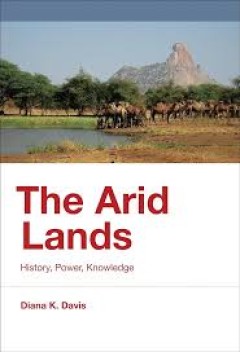
The arid lands history power knowledge
An argument that the perception of arid lands as wastelands is politically motivated and that these landscapes are variable, biodiverse ecosystems, whose inhabitants must be empowered.OCLC-licensed vendor bibliographic record.
- Edition
- -
- ISBN/ISSN
- 9780262333535
- Collation
- 1 online resource (xx, 271 pages, 8 unnumbered pages of plates) :illustrations (some color), maps.
- Series Title
- -
- Call Number
- -
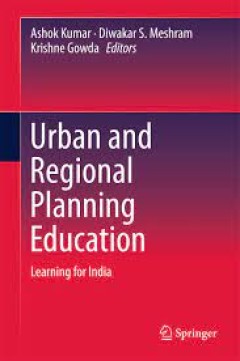
Urban and Regional Planning Education Learning for India
This is the first volume exclusively dedicated to planning education, with a focus on India and learning from global experiences for India. Prior to the 1990s, planning education in India was largely confined to national and local economic concerns. Within a globalized scenario, such pedagogies and theories have become outmoded. With new concerns emerging in planning, new pedagogical tools and …
- Edition
- -
- ISBN/ISSN
- 978-981-10-0608-1
- Collation
- -
- Series Title
- -
- Call Number
- -
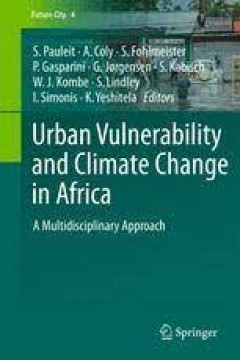
Urban Vulnerability and Climate Change in Africa A Multidisciplinary Approach
Urbanisation and climate change are among the major challenges for sustainable development in Africa. The overall aim of this book is to present innovative approaches to vulnerability analysis and for enhancing the resilience of African cities against climate change-induced risks. Locally adapted IPCC climate change scenarios, which also consider possible changes in urban population, have been …
- Edition
- -
- ISBN/ISSN
- 978-3-319-03982-4
- Collation
- -
- Series Title
- -
- Call Number
- -

The News at the Ends of the Earth : The Print Culture of Polar Exploration
From Sir John Franklin's doomed 1845 search for the Northwest Passage to early twentieth-century sprints to the South Pole, polar expeditions produced an extravagant archive of documents that are as varied as they are engaging. As the polar ice sheets melt, fragments of this archive are newly emergent. In The News at the Ends of the Earth Hester Blum examines the rich, offbeat collection of pri…
- Edition
- -
- ISBN/ISSN
- 9781478003229
- Collation
- 328 halaman
- Series Title
- -
- Call Number
- 800 BLU m
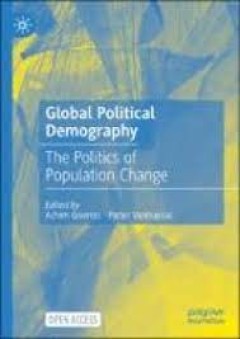
Global Political Demography The Politics of Population Change
This open access book draws the big picture of how population change interplays with politics across the world from 1990 to 2040. Leading social scientists from a wide range of disciplines discuss, for the first time, all major political and policy aspects of population change as they play out differently in each major world region: North and South America; Sub-Saharan Africa and the MENA regio…
- Edition
- -
- ISBN/ISSN
- 9783030730659
- Collation
- -
- Series Title
- -
- Call Number
- -
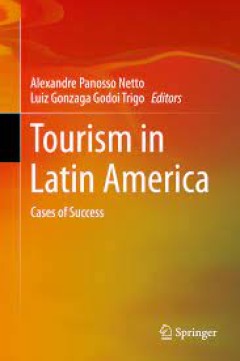
Tourism in Latin America Cases of Success
This book presents eleven case studies of success about Latin America tourism. The cases are embedded in a framework describing the economic and cultural foundations of tourism development in the continent. Mexico, Brazil, Chile and Costa Rica are some of the Latin countries which have become examples and models for touristic development, respect for the environment and social inclusion. The bo…
- Edition
- -
- ISBN/ISSN
- 978-3-319-05735-4
- Collation
- -
- Series Title
- -
- Call Number
- -
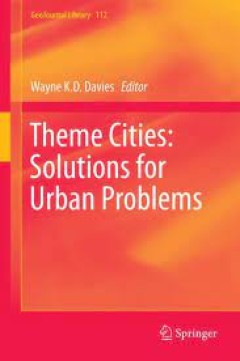
Theme Cities: Solutions for Urban Problems
This book reviews a series of new urban ideas or themes designed to help make cities more liveable, sustainable, safe and inclusive. Featuring examples drawn from cities all over the world, the various chapters provide critical assessments of each of the various approaches and their potential to improve urban life. New Urbanism: creating new areas based on a more humane scale with neighbourh…
- Edition
- -
- ISBN/ISSN
- 978-94-017-9655-2
- Collation
- -
- Series Title
- -
- Call Number
- -
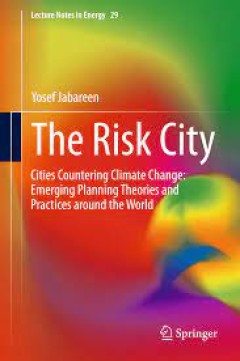
The Risk City Cities Countering Climate Change: Emerging Planning Theories a…
Contemporary cities face phenomenal risks, and they face particularly high levels of mounting social and environmental risks, including social polarization, urban conflicts, riots, terror, and climate change threats. This book suggests that climate change and its resulting uncertainties challenge the concepts, procedures, and scope of conventional approaches to planning, creating a need to reth…
- Edition
- -
- ISBN/ISSN
- 978-94-017-9768-9
- Collation
- -
- Series Title
- -
- Call Number
- -
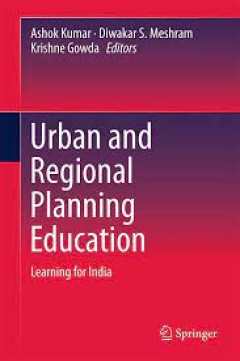
Urban and Regional Planning Education Learning for India
This is the first volume exclusively dedicated to planning education, with a focus on India and learning from global experiences for India. Prior to the 1990s, planning education in India was largely confined to national and local economic concerns. Within a globalized scenario, such pedagogies and theories have become outmoded. With new concerns emerging in planning, new pedagogical tools and …
- Edition
- -
- ISBN/ISSN
- 978-981-10-0608-1
- Collation
- 38 b/w illustrations, 10 illustrations in colour
- Series Title
- -
- Call Number
- -
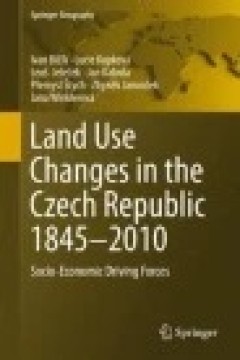
Land Use Changes in the Czech Republic 1845–2010: Socio-Economic Driving Fo…
The objective of this book is to analyze changes in the landscape of Czechoslovakia / the Czech Republic since the first half of the 19th century. The text focuses not only on describing these considerable changes by means of statistical and spatial data, but also on explaining the processes, societal, economic, political and institutional forces that drive them. Drawing on more than two decade…
- Edition
- -
- ISBN/ISSN
- 978-3-319-17671-0
- Collation
- -
- Series Title
- -
- Call Number
- -
 Computer Science, Information & General Works
Computer Science, Information & General Works  Philosophy & Psychology
Philosophy & Psychology  Religion
Religion  Social Sciences
Social Sciences  Language
Language  Pure Science
Pure Science  Applied Sciences
Applied Sciences  Art & Recreation
Art & Recreation  Literature
Literature  History & Geography
History & Geography